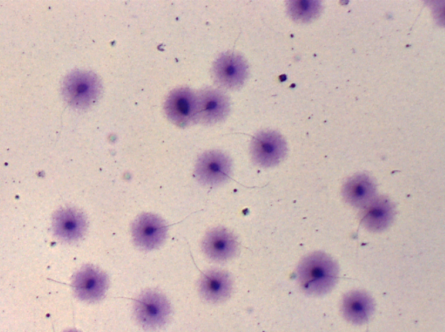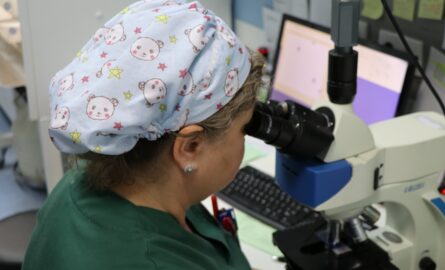Ginemed has recently participated in a study in which 105 men with infertility problems have collaborated.
Several research suggests that sleep duration can affect the integrity of sperm chromatin, one of the main causes of male factor infertility.

We know that poor sleep quality and inadequate sleep hours have a negative effect on overall health. What we did not know is that it can also affect the fertility of men.
Ginemed has recently participated in a scientific study in which 105 men with fertility problems have collaborated to demonstrate the relationship between poor sleep habits and poor semen quality.
The results of the study show that the worse the quality and quantity of sleep, the greater the fragmentation of sperm DNA (DFI), one of the main causes of infertility in men.
Male factor infertility
Male factor sterility is called those cases in which sperm are responsible, partially or totally, for the fertility problem. The causes can be genetic or acquired throughout life.
Today it can be considered that approximately 10-15% of couples have a reproductive dysfunction. Of these cases, 20% are due exclusively to male causes, acting as a contributing factor in at least an additional 25%.
One of the main causes of male infertility is sperm DNA fragmentation (DFI). Sperm with fragmented DNA are related to fertilization, embryonic development, implantation failures, repeated miscarriages and decreased pregnancy rates
Results of previous studies
Some studies have found an association between high sperm DNA fragmentation (high DFI) and irregular sleep, as well as between poor sleep quality and poor seminal quality in fertile men.
Recent studies have shown a change in reactive oxygen species levels due to sleep restriction, suggesting that sleep deprivation indirectly influences sperm chromatin integrity.
Inadequate sleep habits disrupt the expression of circadian genes, leading to a drop in melatonin levels. In turn, the decrease in melatonin translates into a decrease in the ability of cells to repair oxidative DNA damage.
Although research in this field is still limited, recent literature suggests that poor quality sleep and inadequate number of hours of sleep can negatively affect semen quality.
Results in Ginemed
For the assessment of the masculine factor we carry out different studies. The main ones are the karyotype, which examines a sample of the genetic material of the sperm to check that they have the correct chromosome set; and the seminogram , the key test in the study of male fertility because it allows us to know the characteristics of the semen.
Another of the tests that we use is the sperm DNA fragmentation test, the test that has been carried out on the men participating in the Ginemed study in which a relationship between poor sleep and semen fragmentation is observed.
At Ginemed, more than 50% of azoospermia cases manage to have children with their own sperm. After a personalized approach and treatment, we are able to obtain sperm in the most complex cases.




No hay comentarios